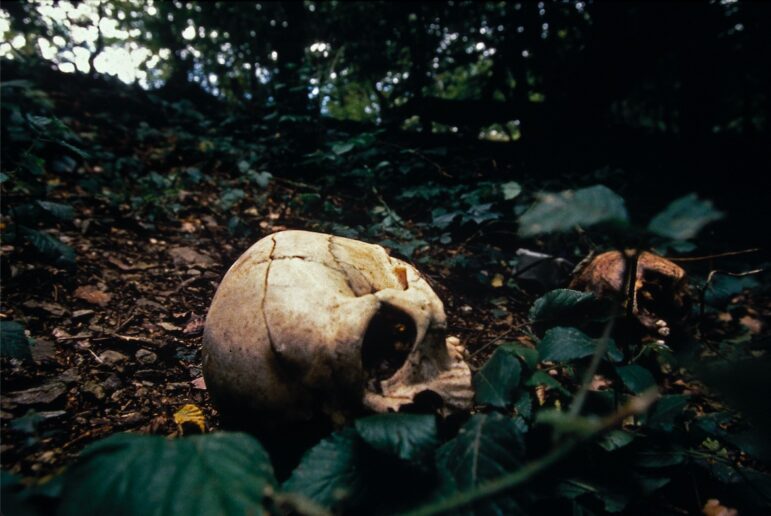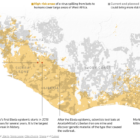The US-based Fund for Investigative Journalism is now accepting grant proposals for groundbreaking stories that uncover wrongdoing in the public or private sector. Grants of up to US$10,000 are available and paid directly to freelancers or media outlets to cover expenses related to reporting, including travel, record and document fees, and paying for journalists' time. The final product can be in print, online, video, radio, book, podcast, or documentary format, but all pieces must be published in English by a US-based media site. (International stories are eligible as long as they have a strong US angle and come from a US-based reporter.) Applications must include a brief summary as well as a more detailed pitch of up to 1,000 words that explains the planned budget for the grant. Candidates must also have a letter of commitment from a media outlet to publish the proposed story to be considered for a grant. Deadline to apply is Tuesday, Sept. 5.
Source: Fund for Investigative Journalism
Access to the Voice of America (VOA) Turkish website has been blocked following a court order. On August 21, Turkey's media regulator, the Radio and Television Supreme Council (RTUK), posted a warning on its website, giving VOA Turkish 72 hours to apply for an on on-demand broadcast license or risk having a court block access to its content, citing a 2019 law that authorizes RTUK to request licenses from "media service providers" for them to continue their online presence. On Monday, in response to a request from RTUK, Ankara's 9th Criminal Court of Peace issued the ban without holding a hearing. VOA spokesperson Bridget Serchak said the broadcaster has no plans to obtain a license as it “cannot comply with any directive intended to enable censorship.” Last year, RTUK banned access to VOA Turkish's previous domain name, amerikaninsesi.com, for refusing to comply with the regulator's license requirement because of censorship concerns. Press freedom groups have called on RTUK to stop issuing fines to opposition and critical press and making foreign news inaccessible in order to control the dissemination of information.
Source: VOA
The prosecutor’s office in Bishkek, Kyrgyzstan's capital, has filed a lawsuit in city courts to liquidate Kloop Media, an independent news outlet and GIJN member known for its reporting on corruption. According to the prosecutor’s document, the reason for the suit is “the implementation of activities that go beyond the scope provided for by the charter.” However, the document focuses mostly on the "negative impact" of tone of Kloop's publications, such as “sharply criticizing the policies of the current government.” Kloop was founded in 2007, and gained prominence in 2010 when it covered Kyrgyzstan’s revolution. It won numerous local awards for its 2017 Samaragate series of investigations, which focused on violations during Kyrgyzstan’s presidential elections that same year. The prosecutor’s move underscores increased pressure on Kyrgyz media.
Source: Kloop
The EU Digital Services Act has now gone into effect, placing strict new transparency and accountability rules upon major online platforms like Google, Meta, TikTok, and Twitter/X. As of August 25, more than 40 of the largest web platforms must now more carefully safeguard what is seen by users in Europe across a broad range of categories, while honoring fundamental rights like freedom of expression and data protection. According to the new regulations, these tech giants are now more directly responsible for content on their sites — and potentially subject to large fines for violations — and must crack down on breaches of the law related to disinformation, political propaganda, election interference, hate crimes, and child abuse and trafficking.
Source: The Guardian
The number of nuisance lawsuits filed in Europe last year increased to at least 161, breaking the previous record of 146 set in 2020, according to figures published by The Daphne Caruana Galizia Foundation and the Coalition Against SLAPPs in Europe (CASE). Strategic Lawsuits Against Public Participation (SLAPPs) are “vexatious” lawsuits filed to shut down acts of public participation, including public interest journalism. They can be brought against media companies, journalists, and anyone who works to hold the powerful to account. Individual journalists were most often the targets of SLAPP cases, followed by media outlets, editors, activists, and NGOs, according to the report. Researchers looked at data from 30 European jurisdictions, but warn that “in some countries, the number of lawsuits mapped by CASE only scrapes the surface when compared to the actual number of cases filed.”
Source: The Daphne Caruana Galizia Foundation / CASE
The Balkan Investigative Reporting Network (BIRN) is inviting journalists from Bosnia and Herzegovina, Montenegro, North Macedonia, Serbia, and Kosovo to apply for a three-day training session on digital rights reporting to be held in Sarajevo on September 26-28. The specialized course will enable journalists from the region to understand digital rights comprehensively, with a focus on reporting breaches, content blocking, manipulation, and digital propaganda as well as open-source investigations, data journalism, fact-checking, and more. Successful applicants will also be eligible for a small grant to produce a digital rights story. Applications close September 5.
Source: BIRN






